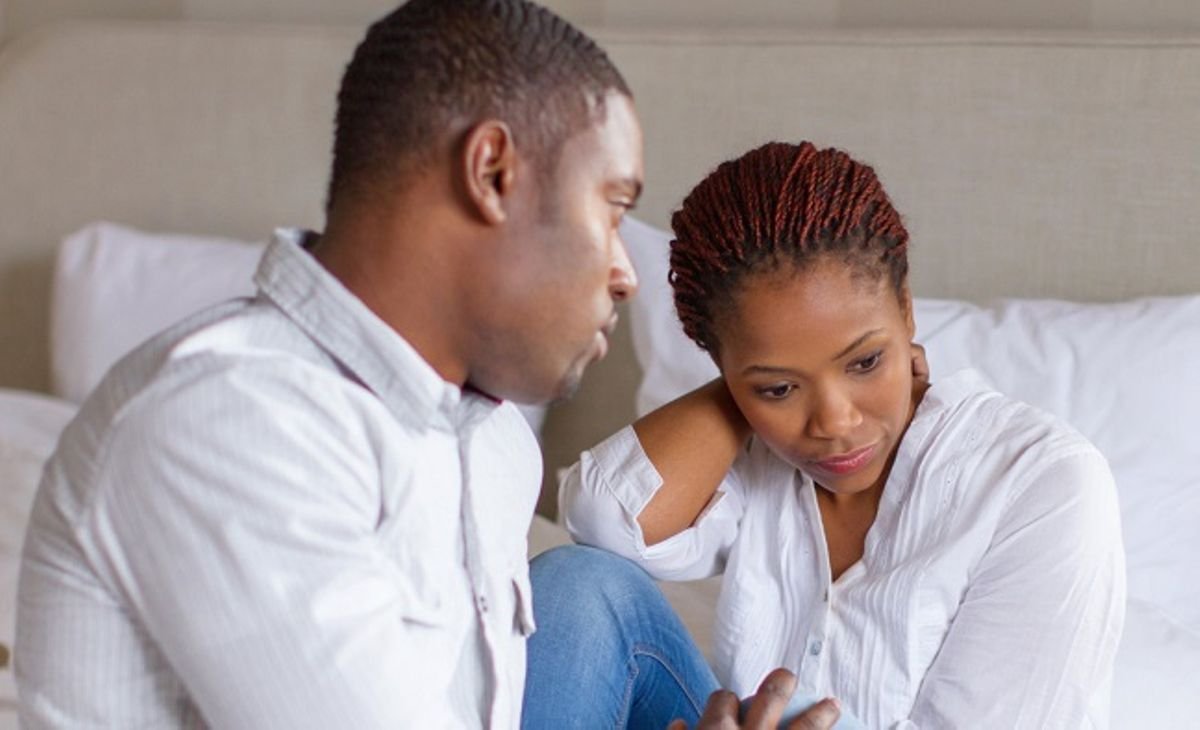Relationship
Qualities to look out for in your marriage counsellor –Part 2

A counsellor should be able to provide strong support
Finding the right marriage counsellor can be a daunting task, but it is a crucial step in building a strong, fulfilling relationship. Last week, we discussed the importance of professional qualifications, rapport building, strong communication skills, and an impartial attitude in a marriage counsellor.
However, there are more essential qualities to consider when selecting a counsellor to guide you. In this second part, we will explore additional characteristics which make a marriage counsellor effective, supportive and trustworthy.
5. Firm ethical standards and professionalism
When it comes to matters as delicate as your relationship, among other things, ensure that your marriage counsellor adheres to a strict code of ethics and professional practice.
Ethical standards ensure that the counsellor’s actions and decisions are guided by a strong moral compass, promoting trust, respect, and fairness.
Professionalism goes hand in hand with ethical standards, as it sets the tone for a productive counselling or therapeutic relationship.
Generally, the counsellor should maintain professional boundaries including confidentiality, respecting your privacy and autonomy, and demonstrating integrity in their practice.
Confidentiality simply means that anything you discuss during your sessions will remain confidential unless there is a legal obligation or an imminent risk of harm. Knowing that your personal matters will be kept private allows you and your partner to be open and honest without fear of judgement or breach of trust.
Remember, finding a marriage counsellor with firm ethical standards and professionalism is crucial for your journey towards a happy and fulfilling marriage.
6. Problem-solving skills
Your counsellor should possess effective problem-solving skills required to help you and your partner identify the underlying issues in your relationship, and develop strategies for resolving conflicts and challenges in your relationship.
7. Empathy and compassion
Look for a counsellor who genuinely cares about your well-being and demonstrates empathy and compassion.
Empathy is the ability to put yourself in another person’s shoes and truly understand their emotions and experiences. On the other hand, compassion goes hand in hand with empathy.
Whereas empathy enables the counsellor to understand your emotions, compassion takes it a step further by prompting them to act on that understanding with kindness and care.
Compassion is the gentle hand that guides you through difficult conversations, allowing you to face the challenges in your relationship with courage and love. A compassionate marriage counsellor will provide strong support, offering a safe haven for you and your partner to express yourselves freely.
Your marriage counsellor should be able to understand and validate your emotions, providing a supportive space for you to explore your concerns. A professional marriage counsellor will try to understand your perspectives, challenges, and aspirations, ensuring that no voice goes unheard.
When choosing a marriage counsellor, remember empathy and compassion are not just nice-to-have qualities; rather they’re essential pillars that contribute to the success of your counselling journey.
8. Cultural sensitivity
Look for a counsellor who has in-depth understanding about your different cultural backgrounds, and is sensitive enough to help you through your diverse cultural beliefs, practices, relationship dynamics and challenges.
Marriage counsellors who are culturally sensitive take the time to truly understand your individual histories, backgrounds, and values, recognising that these factors shape your perspective on marriage (whether good or bad). They should honour you and your partner’s differences and work with you to find common ground, fostering an environment of inclusivity and acceptance.
To be continued …
Source: Excerpts from ‘Preparing for a Happy and Fulfilling Marriage’ Book by REV. COUNSELOR PRINCE OFFEI (Psychotherapist and Marriage Therapist). https://counselorprinceass.wixsite.com/edu-counseling-psych
https://princeoffei22.wixsite. com/website
COUNSELOR PRINCE & ASSOCIATES CONSULT (CPAC)
Relationship
7 things Easter story teaches about marriage, relationships

This time of the year, we reflect quite a bit on the Easter story—the story of Christ’s betrayal, His sacrifice, His death, and ultimately, the Resurrection that changed the course of history and mankind’s relationship with the Creator.
But what does this have to do with marriage or relationships?
If marriage or relationships were meant to reflect the image of God, then there is no better example than Christ, the living embodiment of God’s love.
Through His sacrifice, He showed that love for each other and even for Him was not enough.
Here are seven things we can learn about marriage or relationships from Easter.
1. Betrayal can come from those we love and trust the most.
Jesus knew this all too well. Judas-one of the 12, the few in Jesus’ inner circle—betrayed Him by turning Him in to the chief priests.
Betrayal hurts. When it comes from someone we love and trust, it cuts all the deeper. And some of your deepest pain will likely come from your spouse or the person closest to you.
No marriage or relationship is immune. But it is your response to the offense has to reflect the faith and trust we have in Christ.
2. We are not above betraying the ones we love
Peter was passionate about his relationship with Christ. When Jesus told Peter he would disown Him three times before the rooster crowed, Peter just could not fathom it. “Even if I must die with you, I will not deny you!” Peter told Him. Yet, before the night had ended, Peter “wept bitterly” after he denied His Savior not once, but three times (Matthew 26:34-75).
Matthew 26:41 tells us “The spirit indeed is willing. Sometimes it is unintentional, words often rush out before my brain can catch up. Other times, the words that cut deep leave your lips without fully assessing the damage they will cause. None of us are above hurting our spouse or friends, no matter how much we try.
3. Others won’t believe your marriage/ relationship can be saved
As they gazed upon the suffering Christ, the chief priests mocked Him. “He saved others; he cannot save himself,” they said. “Let the Christ, the King of Israel, come down now from the cross that we may see and believe” (Mark 15:31- 32). The sad irony of their words is that because they refused to believe, they would never see their own salvation on that cross.
Most cultures are a brutal place to try to save a dying marriage. Not only do an increasing number of people not believe in the lasting power of marriage, many will gladly take a front seat to watch your marriage die. They will mock you and your spouse and say divorce is a better option.
Protect your relationship by surrounding yourself with people who encourage your marriage rather than dragging it down.
4. Marriage/relationship takes sacrifice.
Jesus knew what was coming. He prayed in Gethsemane, “My father, if it is possible, may this cup be taken from me. Yet not as I will, but as you will” (Matthew 26:39). Later, before He was nailed to the cross, “they offered him wine to drink, mixed with gall, but when he tasted it, he would not drink it” (Matthew 27:34). The wine concoction offered to Jesus was one typically offered to slightly ease the pain of those condemned to death. Jesus refused to numb even a fraction of the sacrifice He was about to make.
It sometimes seems like a no-brainer that we would give our lives for our spouses. But what about in the day to day? Are you willing to sacrifice your comfort, your preferences, even being right for your spouse?
On a much smaller level, sacrificing yourself for your spouse is putting their best interests above your own through a series of choices that can seem insignificant.
5. Marriage/relationship takes forgiveness.
Jesus’ sacrifice guaranteed God’s forgiveness for those who love Him. Even through the pain of the cross, He called out on behalf of those who crucified Him. “Jesus said, ‘Father, forgive them, for they know not what they do’” (Luke 23:34).
Forgiveness is not just something we have been given, it is also something we, as followers of Christ, are told to do. In Colossians, Paul says, “As the Lord has forgiven you, so you also must forgive” (3:13). Your spouse is going to mess up. A lot. You are too, perhaps even more. A good marriage involves a lot of asking for, giving, and receiving forgiveness.
6. Marriage/relationship takes faith
After the tomb was found empty, Jesus appeared to His disciples. Thomas was not there. And when the others told him they had seen the Lord, Thomas was skeptical.
“Unless I see in his hands the mark of the nails, and place my finger into the mark of the nails, and place my hand into his side, I will never believe.” A week later, Thomas found himself face-to-face with Jesus, who offered his hands to Thomas. “Do not disbelieve,” Jesus told him, “but believe” (John 20:24-29).
There have been times it was a struggle to find the good in your marriage or relationship. It was like trying to find a match in the darkness. Most at times you will not see things getting any better. Holding on when you want to let go takes faith. Even a little.
7. We all need a Saviour
The apostle John recorded the last words Jesus spoke on the cross to be, “It is finished” (John 19:30). Finished was His atonement for our sins. No one else could have paid the heavy debt we carried but the Son of God.
Marriage/relationship is a blessing, but make no mistake, it is hard at times. You and your spouse can not do it on your own strength and determination.
Much like the criminal hanging next to Jesus who said, “Jesus, remember me when you come into your kingdom” (Luke 23:42), you need to recognise the need for a Savior. And much like the disciples who were standing before their risen Lord, you need Him to breathe life into you (and into your marriage) with the Holy Spirit (John 20:22).
Your spouse needs Jesus as much as you do—no more, no less. Remembering this can help you view him or her differently. —familylife. com
Relationship
Tips on building and maintaining healthy relationships
When you commit to taking up a new habit, it is essential to have a clear plan of action before you begin. Start with a long-term goal and keep it S.M.A.R.T: S- Specific M-Measurable A- Achievable R-Relevant and T- Timely
Habit Stacking
Habit Stacking is exactly what it sounds like: putting two or more habits together. We recommend choosing times of the day when routines are strongest. For most people, this is usually the morning or before bed. We know day-to-day life can get a little crazy, but there are certain times when patterns are created, making them the perfect place for a positive change.
The best way to form a new habit is to tie it in with an existing one.
Baby steps
Many experts agree that significant changes require high motivation levels, which can be hard to sustain. Instead, you should start with a slight change that will eventually lead to something bigger.
You can transition to something bigger once you have successfully implemented daily habits for a designated amount of time.
Consistency
Consistency is key. To make something a habit, you need to do it every day. We have all heard the magic ‘21 day’ fix, but the fact of the matter is, it’s not one size fits all.
Celebrate success
Perhaps the most important part of habit-making is rewarding yourself. We know habits take time, but in order to not give up, you need to celebrate every win.
Find the thing you love and allow yourself to experience it once you’ve hit a milestone on your habit-forming journey. Sometimes, the results of habits are not immediately apparent. Do not give up!







